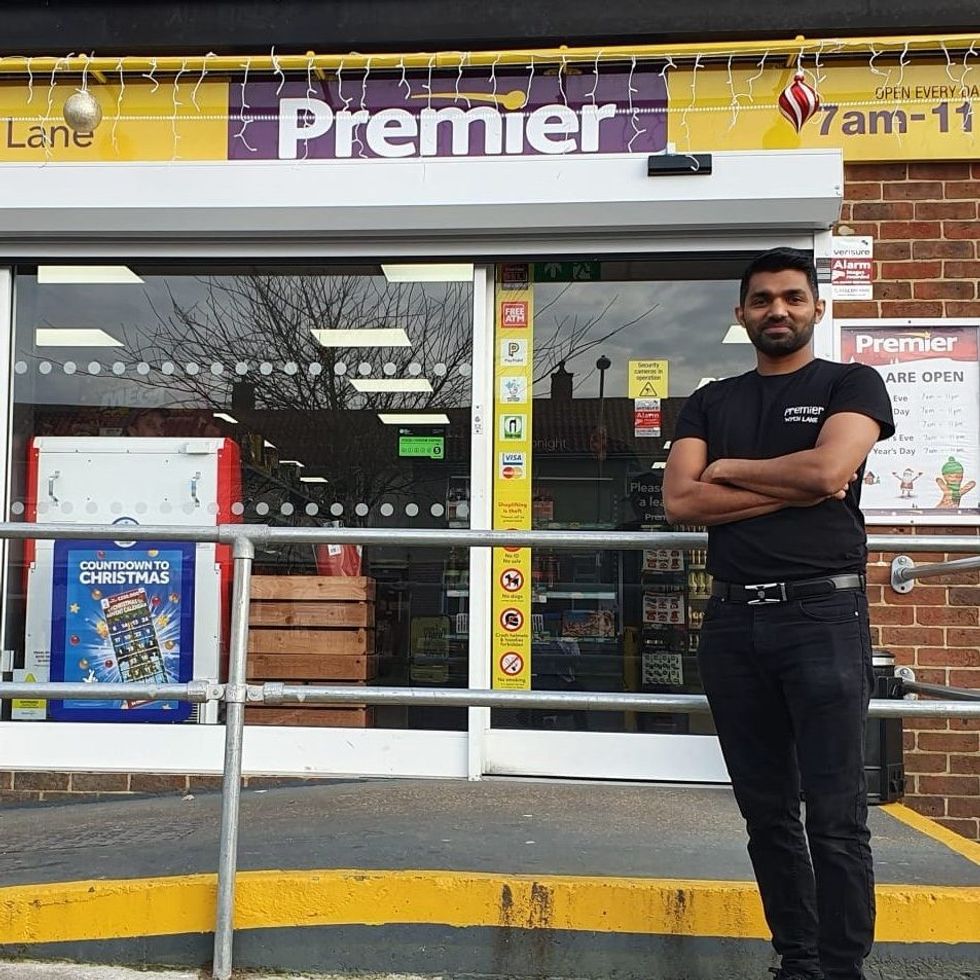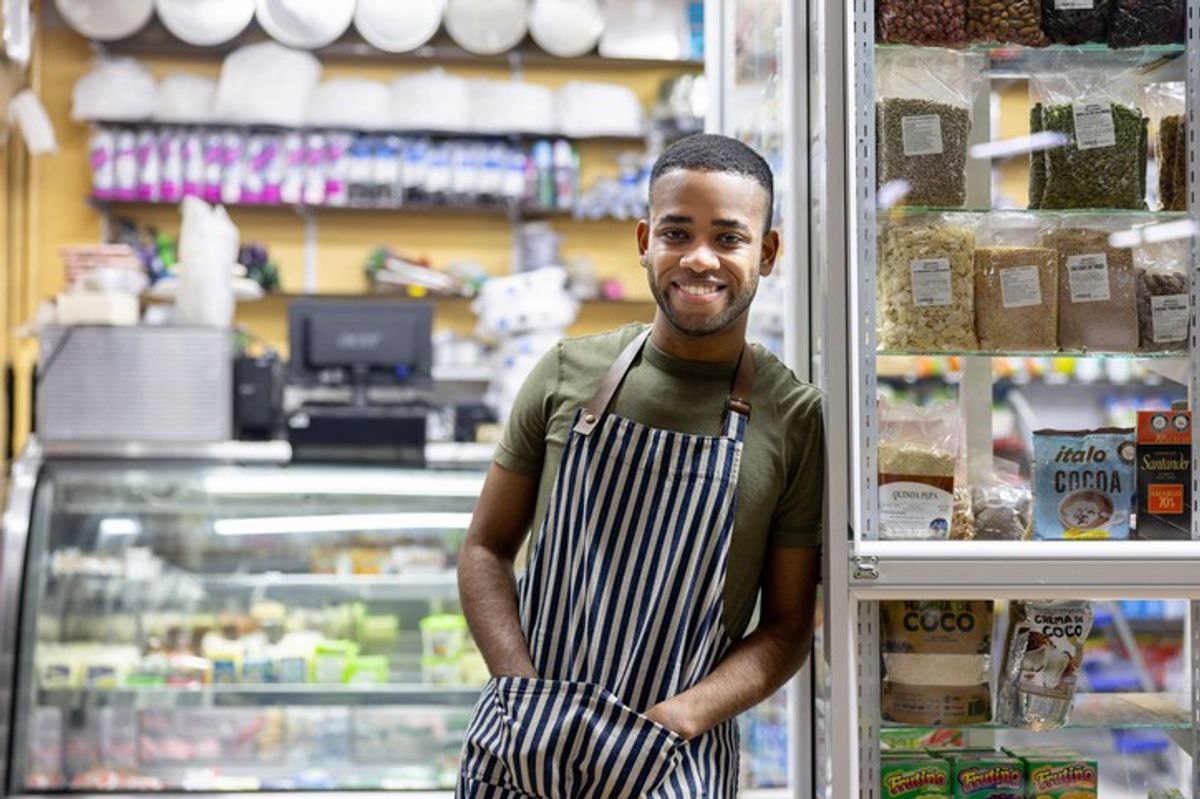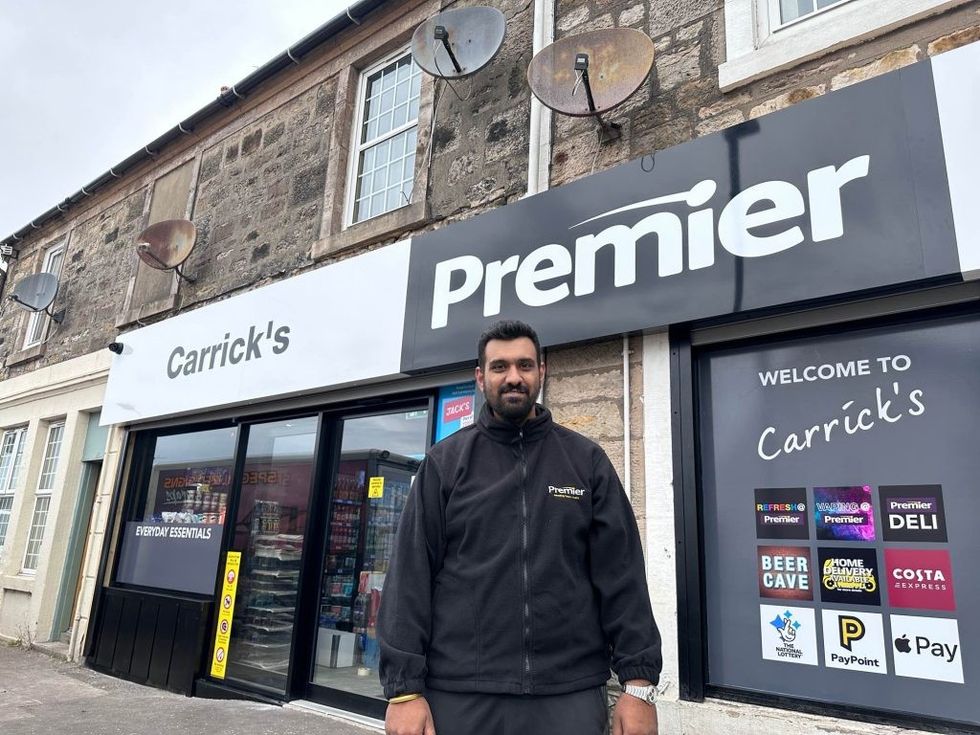As 2023 draws to an end, independent retailers are both exhausted from a particularly overwhelming year as well as concerned yet equally excited about what 2024 is about to bring, Asian Trader has learnt.
Inflation has been the flavour of the year with most retailers battling the cost increase and facing customers’ rage over it, all the time trying to maintain their own margin. Higher energy bills came as icing on the top, eating into stores’ profit. To add to the pile of burdens is the rise of rampant shoplifting which kept most of the store owners on their toes for the better part of the year.
Cost of living crisis emerged as the common pain when Asian Trader got in touch with some independent retailers.
For retailer Trudy Davies, owner of Woosnam & Davies News store and President for West Midlands branches of The Federation of Independent Retailers, 2023 was challenging as it was hard to keep up with rising prices of goods and services.
Located in the small town of Llanidloes in Wales, Davies is known for actively contributing to several causes. Ironically enough, she struggled a lot to sustain her own business this year.
“I have tried to keep my prices as low as I could as I do realise that everyone in my community is feeling the pinch cost of living crisis. Our margins are being squeezed and we have cut everything I think could be detrimental to the business to cut down more costs,” she said.
This year, she consolidated her high street businesses together by relocating her bakery outlet into her newsagent store to offer everything under one roof. A champion of campaigns around “kindness, diversity and women in retail”, Davies is particularly pleased that mental health issues of small business sector came to the fore in 2023.
Gosport-based retailer Imtiyaz Mamode will remember 2023 as the year when he saw his customers struggling with increased costs, some even for bare essentials like milk.
“The year was not only challenging for customers, but it was also tricky for us as people were spending way lesser,” Mamode told Asian Trader.

Amid price rise and weaker economic climate, it fell on to independent retailers to adapt and cater to the needs of all ranges or lose customers to discounters. Croydon-based retailer Benedict Selvaratnam is one of the retailers who endeavored and adapted to fit in various budget ranges in his store.
"This year has been quite a balancing act. We have seen a shift in our customers' shopping habits due to the economic climate. We saw a greater focus on essentials and more careful spending.”
“Adapting to these changes has been the key for us, ensuring we stay relevant and accessible to our community despite the economic headwinds,” said the owner of almost a decade old Freshfields Market convenience store in Croydon.
Apart from the cost-of-living crisis, the surge in retail crime emerged as a major pain for retail.
“Coupled with cost-of-living crisis has been the surge in retail crime. It's alarming how frequent thefts have become. This has added another cost to us in the terms of prevention which is also impacting on our bottom line,” Selvaratnam told Asian Trader.
As crime spiked and police response continued to remain not much of a support, several indie retailers took the matter in their own hand to safeguard their businesses- be it through hiring extra staff to keep an eye or turning to tech for solutions.
Scotland-based retailer Charanjit Singh Binning is among those ones. Apart from undertaking a massive renovation and expansion project to refurbish his store in Kilwinning (that has been in the family for 22 years), he also installed an AI-enabled adaptive audio and visual content to deter shoplifters.
“We tried to be proactive and got RETaiL AI to do the media system in my store. It’s a customised audio video system that can be adapted to remotely ‘warn off” suspected shoplifters in real-time.”
Like his peers, Binning too felt helpless seeing his customers struggle to buy essentials.
“We are concerned about them, but we are also concerned about our margins too. Since there is a supermarket nearby, I have to be double sure that our offerings and prices remain competitive. Our margins were squeezed in some product lines but obviously, that is out of our control,” he said.
Looking Ahead
According to IGD, the UK food and grocery industry is expected to reach a total value of £217.7 billion in 2024.The food-to-go market is expected to surge to £23.4bn, which is double the growth of the wider UK food and grocery retail market.
Supermarket giants like ASDA and Morrison are investing aggressively in smaller convenience store format and the same is expected to gain momentum in 2024. According to Fitchratings, margins of most food retailers have been stabilising so far in 2023 and the same trend is expected to continue into 2024.
However, fact remains that these margins are being eaten into from various angles.
Retailer Selvaratnam is concerned over both retail crime as well as its deterring tech as they are “eroding profit margins”.
“It's an ongoing struggle to balance these realities with the need to provide great service and value to our customers,” he told Asian Trader.
Rise in minimum wages is something that is also going to pinch independent store owners a lot.
National Living Wage will inflate by 9.8 per cent to £11.44, with the Low Pay Commission recommending that the people eligible for the NLW be reduced from the age of 23, to 21. In addition to this, the National Minimum Wage for 18–20-year-olds will increase by 14.8 per cent, bumping up to £8.60.
The government has granted a higher minimum wage, which is definitely good news for shop workers though fact remains that the raise is coming out of store owners’ pockets. Additionally, some might be already paying above minimum wage (like Davies), but still have to shell out more as the staff tend to request a raise of the same percentage whenever the minimum wage goes up.
Cost of energy is also giving retailers sleepless night. The key here is to adapt and innovate.
Binning said, “We will have to manage these costs. After the store’s renovation, we now have a lot more refrigeration than we used to have. I have tried to install the most energy efficient equipment because personally, I don't see the cost of energy going down anytime soon. Once it goes up, it’s hardly ever comes down and we all will eventually have to accept it as new normal.”
“We all will have to absorb these costs so it is better to figure out more and unconventional revenue channels like a great bakery offering,” Binning told Asian Trader, saying a business can be “as good as the owner wants it to be”.
“We are trying to think out of the box and be innovative. We are being receptive to customers’ feedback and demands. We are with a lot of local suppliers, which are doing fantastically well, and customers absolutely love it because we are supporting local business,” he told Asian Trader.
Binning’s peer Mamode, whose store is a major TikTok attraction for its unique line up of confectionery, is also set to get even more innovative to attract more customers and give them a better experience.
“I am planning to refurbish the store a bit from inside- some change of fixtures. It's almost five years now and we need a bit of change in the store with the help from Booker,” he said.
Confusion over legislations and schemes, political unrest and back-and-forth moves by the government is another concern for retailers.
Davies said, “My main concern right now is the vape situation and what the government is going to decide about their fate in the UK. Vapes have been very successful for our store and helped us to maintain customer base who used to smoke and now trying to quit so we certainly need vapes to combat our loss of sales in tobacco products,” Davies said, pointing out how it is tricky to plan amid this uncertainty.
“It’s this uncertainty with no real guidance that is proving a major hindrance for us in moving forward. The government seems to be playing catch-up with vapes,” she said.
Davies, however, is also excited for 2024 as she is looking forward to many large and small celebrations in the country - Olympics, Euros and similar more in a year that has an extra day!
“This hopefully will give the country a feel good little ‘lift up’ to celebrate together and in turn will give a potential for growth of sales around such events.”
She is also looking forward to working with the many great suppliers that are “really connecting” with retailers to drive successful sales.
“There are a couple of brands in the confectionary and toy sections that will be celebrating their anniversaries, like Cadbury that will be celebrating a staggering 200 years. Looking to see what they have planned in 2024 like some exciting consumer competitions, giveaways for customers or POS to place in our store for us to help them celebrate,” Davies told Asian Trader.
Cry for help
Be it new wage cost, rampant crime, higher bills or squeezed margins, It is clear that indie retailers are in dire need of government's empathy and support.
Selvaratnam said, “We are in need of more support from the government and local authorities to address the retail crime issue. It’s crucial that more effective measures are put in place to protect small businesses like ours. Additionally, as we navigate through these tough economic times, any additional support or relief would be immensely helpful for independent retailers struggling to keep afloat."

Retailer Mamode resonated with Sevaratnam when he stated that the government should help small retail businesses which in turn are serving the community.
“We need immediate support in business rates and electricity bills. A substantial help in these two aspects will be a great help for everyone.”
Another need of the hour is concrete, strict and timely police action on crime.
“I understand police force can be busy somewhere else at the time I am reporting but at least they can do something when we are giving the evidence. There should be stricter rules and regulations because there is no point in putting so many cameras and in giving them all the evidence when nothing is being done,” Mamode told Asian Trader.
Davies feels government and councils should “talk more with people who are running small businesses” to understand their issues.
“I have conversations with many other retailers as a member of The Fed, FSB & ACS (who are all great ambassadors for us small businesses) and therefore I know there are several businesses out there that are on the edge of ‘just about making a living’. They need immediate government support.
“Also, please, before bringing in new laws or legislation, talk to us and really listen and then only act to support,” Davies said, adding that she is “optimistic about 2024” and is set to “roll up her sleeves and keep moving forward”.
As perfectly summed up by Binning, challenges come and go, but the real challenge is to keep innovating, adapting and trying to stay one step ahead. As they say, when times get tough, only the tough get going.




